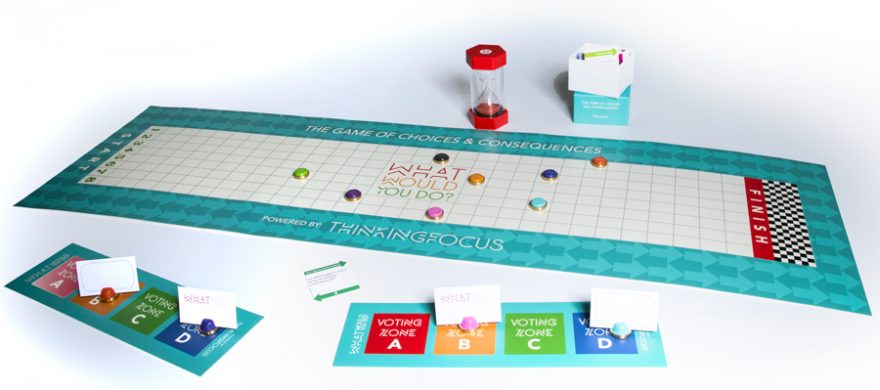A range of organisations are turning to gamified learning as a way of motivating employees, boosting engagement and driving business success.
The technique allows companies to deliver effective learning content and training strategies combined with an element of fun. Applied successfully, it can help businesses achieve goals and outcomes by using game dynamics to connect with employees, gain feedback and measure performance.
What is gamified learning?
‘Gamification’ is the use of game thinking and game mechanics in a non-game context to engage users and/or solve problems. It uses achievement, reward, creativity and self-expression and then uses points, badges, levels, leader boards and various challenges to motivate employees.
But these mechanisms don’t always make a difference on their own. The focus of the approach needs to centre on individual development – the ‘human aspect’ – to help employees feel valued and enhance their problem-solving skills.
Board games
Many companies apply gamification within their apps, websites or e-learning tools but the good ‘old fashioned’ board game can have equally positive benefits, as well as some extra ones. A key difference is that they bring people together to play and discuss the game face-to-face. This leads to a greater sense of engagement and a more productive session.
When it comes to the way we behave in different scenarios, board games can develop areas such as communication, resolving conflict, team work, creativity negotiation, empathy and decision-making. They can help to increase learning and create a sense of achievement.
As an example of how even ordinary board games can teach us business skills, take Amazon’s best-selling board games in 2017. They include the classic Monopoly, which teaches us how to seal a deal and use negotiating skills as each player looks to build up their position on the board. And the fast-talking description game Articulate is not only a lot of fun but also tests skills of creativity, communication and team-work as players work together to achieve a common goal – with the added, high-pressure element of having just 30 seconds in which to describe as many words as possible.
So think how effective a board game would be that’s specifically created to be played in a business environment, and focuses on work-based scenarios. This was our thought process when one of our clients, world-leading car seat manufacturer Adient, asked us to help find an innovative solution to their management training needs. The result was that we created a gamified learning solution based on a traditional board game, using a simple game play premise to improve leadership skills, engagement, and communication between peers.
What Would You Do? is a scenario-based game which tests decision-making abilities both in an immediately reactive as well as a more considered way. Although points are awarded for preferred answers, enabling participants to move up the board and win, the mechanics of the game are really just a vehicle for generating discussion and debate, and sharing experience and expertise. It allows peers to work through business issues in a fun and engaging way.
What Would You Do? is available to all businesses and is aimed at first line managers, team leaders and supervisors. It also works as a resource to develop graduates and identify management potential.
It was launched in May and received overwhelmingly positive feedback, with the board game approach proving particularly successful in engaging participants and helping to make learning stick.

